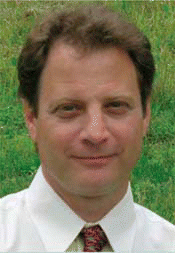The aim of Robert J. Sciacca, MD, is to provide an environment where his patients feel comfortable in candidly and openly discussing their health. I pride myself on being able to talk to my patients about supplements.
Explore This Issue
April 2008Similarly, Dr. Sciacca was influenced by Native American culture: His mother was Native American, and his mother and grandmother lived on a reservation in Wisconsin, so he was exposed to nonconventional medicine at an early age. In addition, before attending medical school at the age of 30, Dr. Sciacca served in active military duty for six years with the US Army, saw combat in Vietnam, was wounded twice, and spent about eight months in a hospital. Acupuncture was part of his recovery plan-and he was so convinced of its efficacy that he became certified in acupuncture at UCLA.
He hasn’t departed completely from traditional otolaryngology-he exercises his surgical skills about two days each week. But rather than just focus on the immediate physical problem, Dr. Sciacca tries to understand external factors that could affect a patient’s health, especially a surgical outcome. I pride myself on being able to talk to my patients about supplements, he said, explaining that many patients fear derision by a physician for taking naturopathic substances. Dr. Sciacca’s aim is to provide an environment where his patients feel comfortable in candidly and openly discussing their health.
Creating a safe and welcome environment for patients is also a crucial aspect of Dr. Asher’s practice-perhaps the most crucial. He spends an hour with each new patient, and he devotes half of that time to taking a detailed history-not just related to their specific otolaryngological problem, but also concerning their digestion, stress, environment. To Dr. Asher, listening to the patient can be of more value in diagnosing and treating his or her health dilemma than a physical exam. For example, he noted that a common problem he sees is globus, the sensation of a foreign body in the throat. In a typical office, this often is misdiagnosed or disregarded as reflux, he said. And that may be true, but in at least 50 percent of the patients that I see who have that particular problem, they have some unresolved, active, ongoing grief issue. And in our society, we don’t deal with grief at all…. People don’t really recognize the [physical] impact grief has on them.
Dr. Asher views himself and other holistic physicians as mind-body-spirit doctors. As a high school student in the late 1960s, he was intrigued by meditation, and in college, he enrolled in a transcendental meditation program. He eventually began to teach meditation, which he credits as his inspiration to study medicine. I thought if I were a doctor, I could help people and use meditation to get people to reduce stress, he said.
Collaboration and Challenges
Though Drs. Judkins, Sciacca, and Asher differ in philosophy-and sometimes in practice-from their mainstream colleagues, they don’t have problems collaborating with them. Dr. Asher, for example, though surgically conservative, does refer patients to surgeons when he sees fit. Sometimes, people come in for a second opinion, and I tell them, ‘Look, you have no option here. You need to have surgery.’ At the same time, he often sees patients who are referred to him by some of the best sinus surgeons in the world, after multiple unsuccessful procedures.

Leave a Reply